For Your Consideration
Besties / Bookends
I was going to take the Labor Day weekend off, but that's a slippery slope. Especially when you're a writer who works at home and doesn't punch a clock, there's really an excuse for slouching off any and every day of the week.
On the other hand all of you are probably busy, sunning yourself on a Lake Powell houseboat or hiking the trails of Mt. Tamalpais or waiting for the Man to burn in Black Rock City (sigh). I suspect you have very little time to read this Substack. So I'm going to be very brief, after a quick introductory tale.
In 1995, when The Size of the World was first released, I had a good friend named Barbara working at the Norton Simon Museum in Pasadena CA. I've always loved that museum; in particular a beautiful 1932 Picasso portrait on display: Woman with a Book, which portrays his then lover, muse and frequent model, Marie-Thérèse Walter, in a provocative yet pensive pose:
Imagine my surprise and utter delight when somehow, long before Photoshop existed, Barbara —a longtime admirer of my work —stealthily engineered this collage:
Today, with events for the book’s 30th Anniversary Edition kicking off, I’m giving her courageous gift its first public exposure. (I don't think Barbara can get fired for it anymore.)
Two unexpected media events during the past week affected me deeply, and I invite you to partake of either or both of them during your holiday weekend (if you’re not busy reading my book!).
The first one was last Sunday's episode of The Daily, one of the many New York Times podcasts. This was the final Daily podcast inspired by the NY Times’ “Modern Love” column, and a repeat of a very moving interview with actress Bridget Everett, star of the Emmy-nominated HBO show Somebody Somewhere. Not everyone loved Somebody Somewhere, but I did. Set in the small town of Manhattan, Kansas, eschewing the hooks of sex or violence, it offered some of the most authentic portrayals of human relationships I’ve seen in a series. When it ended (for good, after three seasons), I felt a strong pang of personal loss.
The subject of the “Modern Love” interview — and the short essay that Everett reads, written by novelist Austin Breyfield, about his friendship with an elderly neighbor named Victor — is one that’s been much on my mind: “A best friend can be your greatest love.”
As a person who has never married or had kids (though I adore my godson and five goddaughters), I haven’t experienced the joy of finding someone who is both a best friend and a life partner. At this point in the arc of my life, trying to hold my baseline while keeping up with the pranks of Parkinson’s, it’s clear that the future likelihood of such an alliance is on the membrane of nope and non-zero. This “Modern Love” episode felt like a validation, confirming my belief — held since my late teens — that friends can be as close as family. Friendship, as Everett says, can be a primary thing; “My friends are my people.”
Anna Martin (New York Times):
“Near the end of this essay, Victor tells Austin that their relationship has everything but sex. And he realizes that ‘the greatest romances of my life have been friendships.’ What do you think about the idea of using romance to describe a friendship, that word? Does it work? Do we need better words?
Bridget Everett
No, I love it. I say that all the time. And with Sam [i.e., Everett’s character on Somebody Somewhere] and Joel, they fall in love with each other. And it is a romance. It is like you can get swept off your feet by a friend... and [even though sex is not involved] you are in love with them in some degree.
On a similar note: The other evening my friend Zena came by for dinner, and reminded me that we’d talked about watching the new Paul Simon documentary, In Restless Dreams, together.
I grew up with Simon and Garfunkel. Their 1968 album Bookends — released when I was fourteen — was one of the most profound musical influences of my teen years, long before Leonard Cohen, Joni Mitchell, The Jefferson Airplane or even The Beatles landed on my radar. Even today, I can remember the lyrics to almost every song. Including the haunting melody Old Friends:
Can you imagine us
Years from today
Sharing a park bench quietly?
How terribly strange
To be seventy
Song lyrics @ 1968 by Paul Simon / © 2021 by Sony Music / all rights reserved
How strange indeed. Seventy seemed, well, a lifetime away. And little did I know — do any of us know – what was in store.
In Restless Dreams is in two parts, a total of four hours long. The previous night I’d watched Lady Blue, a poorly written 2024 doc about Joni Mitchell, and was dubious. But Alex Gibney’s masterful and creative treatment of Paul Simon — a composer on par with the very best — is beautiful, wise and deeply nostalgic. At least several times I was close to tears. Simon’s unforgettable songs—including masterpieces like Sounds of Silence, Mrs. Robinson and I Know What I Know sent me back in time, to the years when my biggest concerns were avoiding the neighborhood bullies, passing my final exams or finessing my next trip to Nepal.
So bookending it here, before I hit 1,000 words: You could do worse than to invest five hours of your Labor Day weekend listening to the “Modern Love” podcast, and binging In Restless Dreams.
PS: If you are heading out on the highways this holiday, you might want to read my recent (Monday 8/25) Op-Ed in the San Francisco Chronicle: How Not to be an Asshole Driver. It’s fun.
Have a great holiday, and safe travels to all the Burners out in Black Rock City!



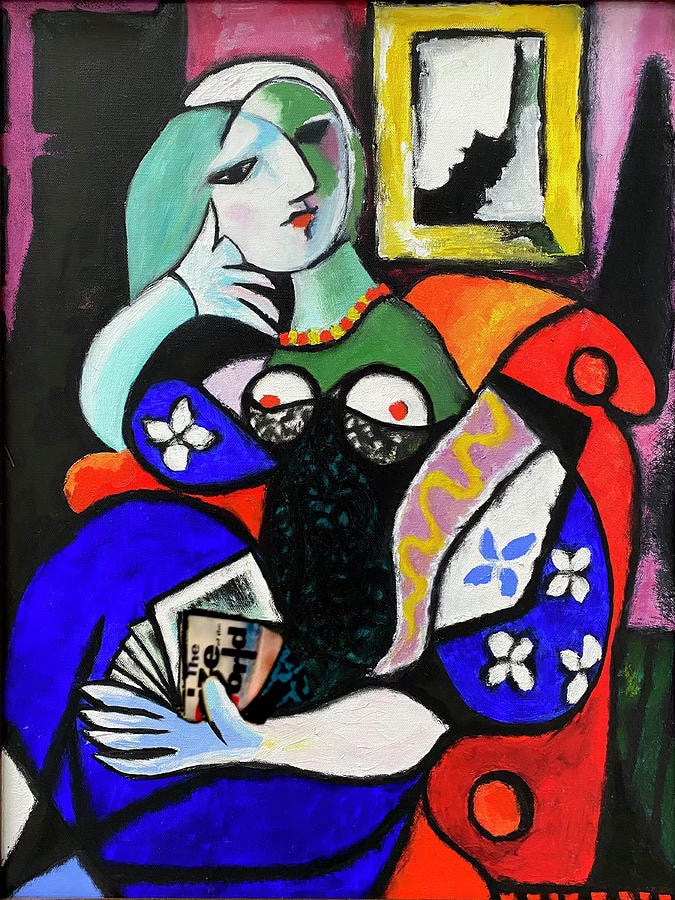
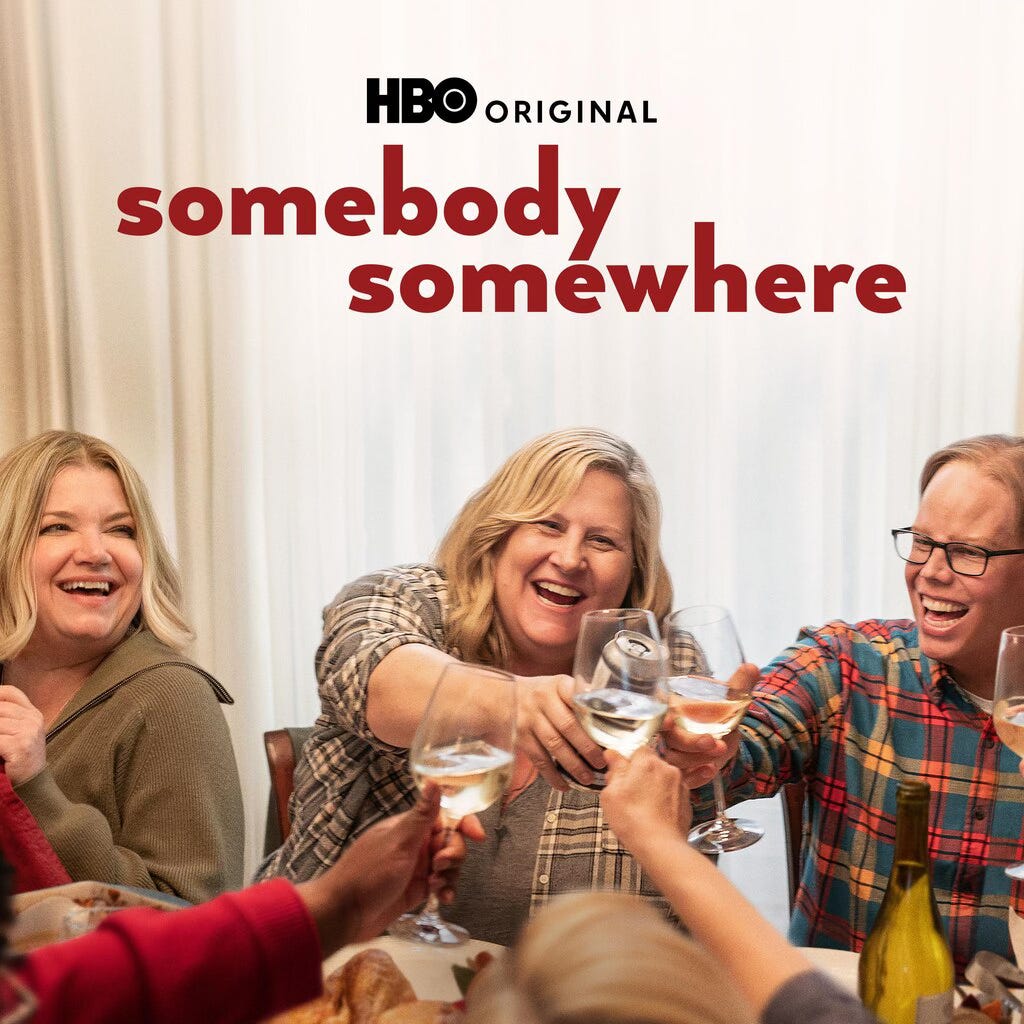
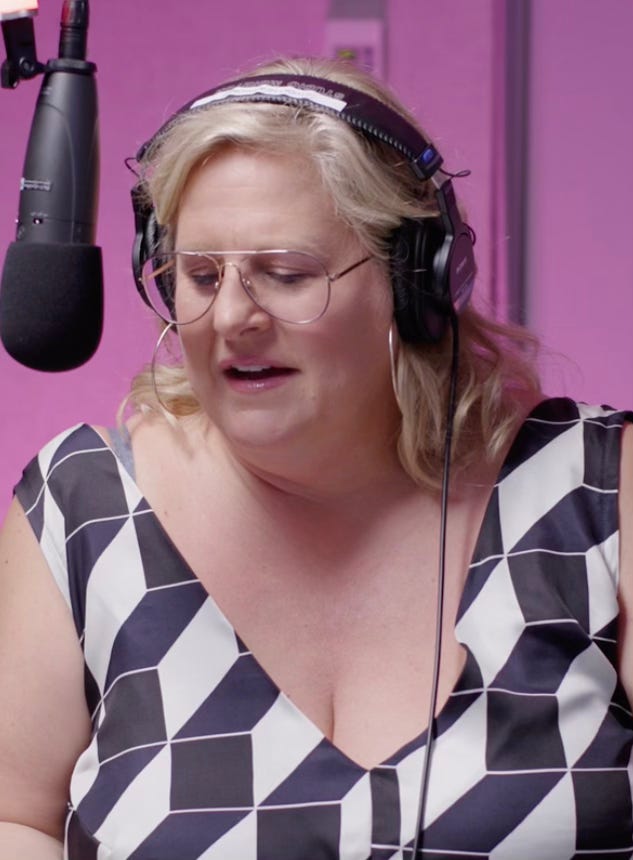
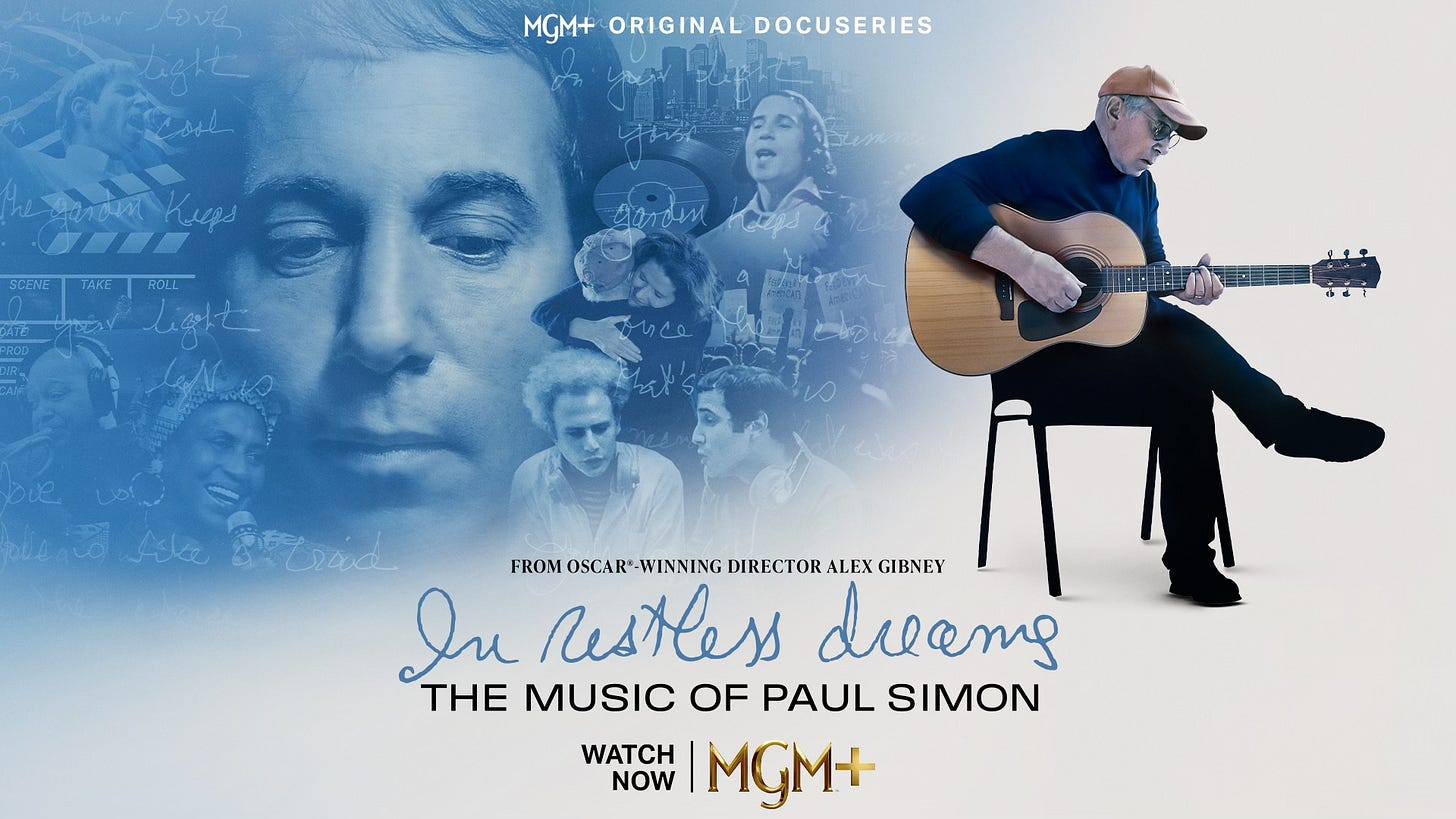
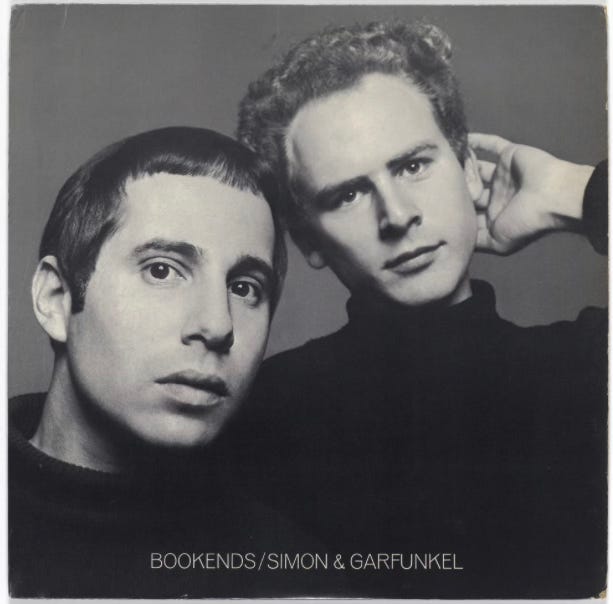
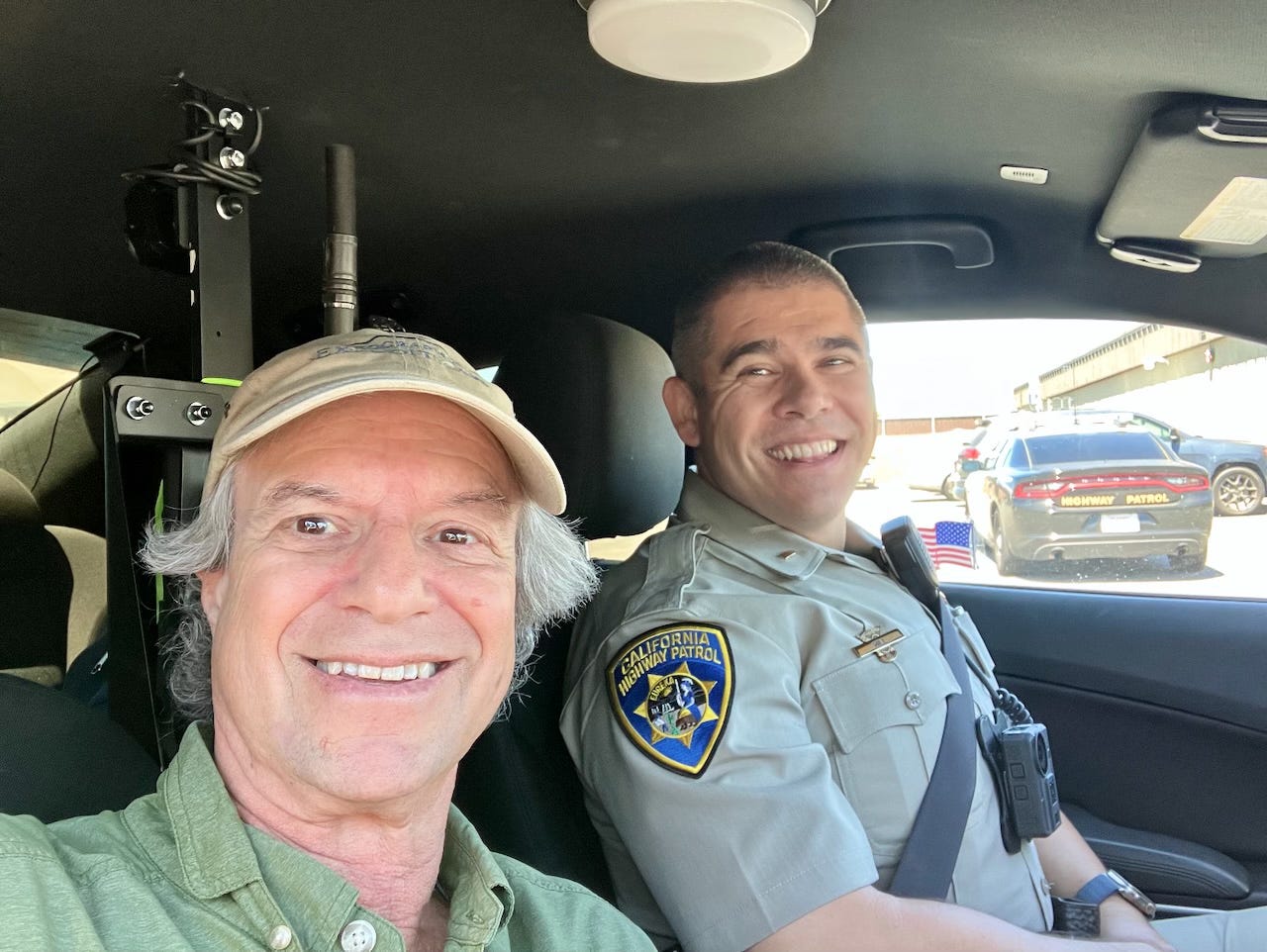
I appreciate how you brought together so many disparate things - friendship and Parkinson's and what it means to love. It's honest, Jeff, and I appreciate how you let the walls come down here. Very beautiful.
We come on the ship they call The Mayflower
We come on the ship that sailed the moon
We come in the age's most uncertain hours
And sing an American tune
Oh, and it's alright, it's alright, it's alright
You can't be forever blessed
Still, tomorrow's going to be another working day
And I'm trying to get some rest
That's all I'm trying to get some rest
Paul Simon